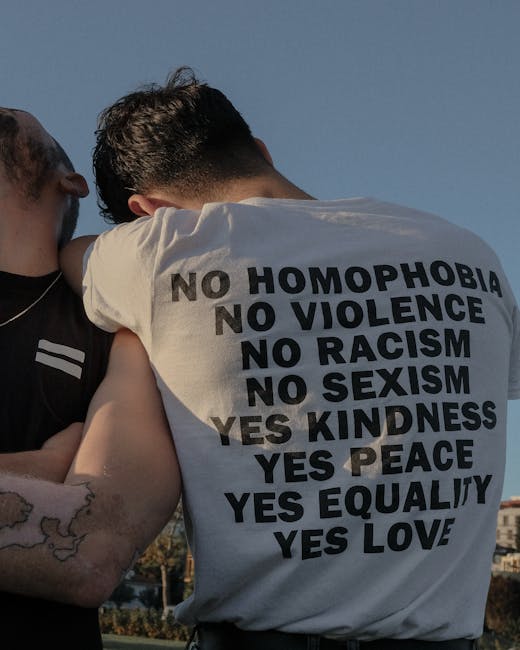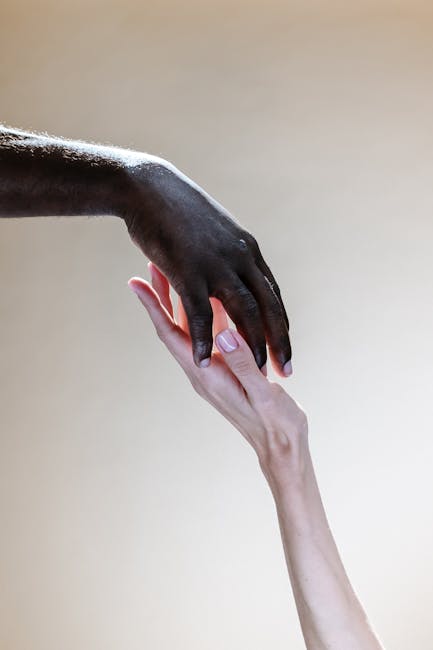Misunderstandings in friendships can feel like a storm cloud suddenly appearing on a sunny day. One moment, everything is fine, and the next, you’re caught in a whirlwind of confusion and hurt feelings. But here’s the good news: misunderstandings don’t have to mean the end of a friendship. In fact, when handled well, they can strengthen your bond and deepen your connection. So, how do you navigate these tricky waters? Let’s dive in.
Key Takeaways
- Misunderstandings are a natural part of friendships and relationships.
- Constructive responses and effective communication are key to resolving conflicts.
- Taking responsibility and fostering mutual accountability can rebuild trust.
- Healing requires effort, honesty, and sometimes professional support.
Understanding the Nature of Misunderstandings in Friendships
Recognizing that friendship problems are real and valid
Friendship struggles can sometimes feel trivial compared to romantic or family conflicts. But let’s be real—when your best friend stops texting back or seems distant, it stings.
It’s important to acknowledge that friendship problems are just as valid as any other relationship issue. Ignoring them or brushing them off as “no big deal” can lead to resentment or even the loss of a meaningful connection.
Normalizing conflict as a natural part of relationships
No friendship is perfect. Even the closest friends will have disagreements or moments of miscommunication. Conflict is a natural part of any relationship because, well, we’re all human.
Think of it like this: friendships are like gardens. Sometimes weeds (misunderstandings) pop up, but with care and attention, you can pull them out and help the garden thrive again.
Exploring the impact of attachment styles on conflicts
Did you know your attachment style can influence how you handle misunderstandings? For example, someone with an anxious attachment style might overthink a friend’s silence, while someone with an avoidant style might withdraw completely.
Understanding these dynamics can help you approach conflicts with more empathy. If you’re curious about setting boundaries or managing emotions during conflicts, check out these tips for setting and maintaining healthy boundaries.

Responding to Misunderstandings Constructively
Hitting pause to avoid impulsive reactions
When emotions are running high, it’s tempting to fire off a heated text or confront your friend immediately. But acting on impulse can often make things worse.
Instead, take a step back. Breathe. Give yourself time to process what happened before responding. This pause can help you approach the situation with a clearer head and a calmer heart.
Getting curious about underlying issues
Misunderstandings often stem from deeper issues. Maybe your friend canceled plans because they’re overwhelmed, not because they don’t value your time.
Ask yourself: “What else could be going on here?” Approaching the situation with curiosity rather than judgment can open the door to understanding.
Avoiding assumptions and jumping to conclusions
Assumptions are like quicksand—they can pull you deeper into conflict. Instead of assuming your friend’s intentions, ask for clarification.
For example, instead of thinking, “They’re ignoring me on purpose,” try saying, “I noticed you’ve been quiet lately. Is everything okay?” This approach invites dialogue rather than defensiveness.

Effective Communication During Conflicts
Communicating with the intention of preserving the friendship
When addressing a misunderstanding, your goal should be to repair, not to win. Focus on preserving the friendship rather than proving a point.
Use kind and respectful language, even if you’re upset. Remember, the way you communicate can either build a bridge or burn it down.
Practicing active listening and empathy
Listening is more than just hearing words—it’s about truly understanding what your friend is saying.
Put yourself in their shoes. How might they be feeling? What might they need from you in this moment? Empathy can be a powerful tool for resolving conflicts.
If you want to sharpen your communication skills, this guide on developing effective communication skills is a great place to start.
Using “I” statements to express feelings and concerns
Instead of saying, “You never listen to me,” try, “I feel unheard when I share something important, and it seems like you’re distracted.”
“I” statements focus on your feelings rather than blaming the other person, which can make the conversation less confrontational.

Taking Responsibility and Acknowledging Contributions
Owning your part in the misunderstanding
It takes two to tango, as they say. Even if you feel like the misunderstanding wasn’t your fault, it’s worth reflecting on your role in the situation.
Did you communicate clearly? Did you make assumptions? Taking responsibility for your actions shows maturity and a willingness to grow.
Apologizing sincerely when necessary
A heartfelt apology can go a long way in mending a friendship. Be specific about what you’re sorry for and avoid making excuses.
For example, “I’m sorry for snapping at you earlier. I was stressed, but that’s no excuse for how I acted.”
Encouraging mutual accountability
Healthy friendships thrive on mutual accountability. Encourage your friend to share their perspective and take responsibility for their part as well.
This creates a balanced dynamic where both parties feel heard and valued.

Healing and Moving Forward
Deciding what the friendship needs to heal and grow
Every friendship is different, so there’s no one-size-fits-all solution for healing. Some friendships might need a heartfelt conversation, while others might require time and space.
Ask yourself: What does this friendship need to move forward? And don’t be afraid to discuss this openly with your friend.
Creating opportunities for growth through open and honest discussions
Honest conversations can be uncomfortable, but they’re essential for growth. Use these moments to set new boundaries, clarify expectations, and strengthen your bond.
If you’re unsure how to approach these discussions, this resource on conflict resolution might help.
Seeking professional support if conflicts remain unresolved
Sometimes, despite your best efforts, conflicts remain unresolved. In these cases, seeking support from a therapist or counselor can provide valuable insights and tools.
Building Resilience in Friendships
Strengthening trust and mutual respect
Trust and respect are the foundation of any strong friendship. Show your friend that you value them by being reliable, honest, and supportive.
Learning from past conflicts to prevent future misunderstandings
Every conflict is an opportunity to learn. Reflect on what went wrong and how you can handle similar situations better in the future.
For example, if poor communication caused the misunderstanding, make an effort to be clearer and more direct moving forward.
Embracing conflict as a means for deeper connection and growth
Believe it or not, conflict can bring friends closer together. When you work through misunderstandings with care and respect, you build a stronger, more resilient bond.
Think of it like forging steel—it’s the heat and pressure that make it stronger.

Friendships are one of life’s greatest treasures, but they’re not always smooth sailing. Misunderstandings will happen, but with patience, empathy, and effective communication, you can weather the storm and come out stronger on the other side.
For more insights on maintaining healthy relationships, check out this guide on how to regulate emotions during conflicts.
Remember, every friendship is a journey, and every conflict is just a bump in the road. Keep the bigger picture in mind, and don’t let a misunderstanding derail something beautiful.
FAQ: Navigating Misunderstandings in Friendships with Grace and Understanding
What are the common causes of misunderstandings in friendships?
Misunderstandings in friendships often arise from miscommunication, unmet expectations, differing perspectives, or assumptions. External factors like stress or personal challenges can also contribute to these situations.
How can I approach a friend to discuss a misunderstanding?
Choose a calm and private setting to talk. Use ‘I’ statements to express your feelings without blaming, and ensure you’re actively listening to their perspective as well.
What should I do if my friend doesn’t want to talk about the issue?
Respect their space and let them know you’re open to discussing it when they’re ready. Sometimes, giving time can help emotions settle and pave the way for a productive conversation.
How can I prevent misunderstandings in the future?
Prioritize clear and honest communication. Regularly check in with your friend, clarify expectations, and avoid making assumptions about their thoughts or actions.
What if the misunderstanding leads to a heated argument?
Take a step back to cool off before continuing the conversation. Apologize if necessary and focus on resolving the issue rather than assigning blame.
How do I know if the friendship is worth saving after a misunderstanding?
Evaluate the overall value of the friendship, the frequency of conflicts, and whether both parties are willing to work through the misunderstanding. Healthy friendships are built on mutual respect and effort.
What role does forgiveness play in resolving misunderstandings?
Forgiveness is crucial for moving forward. It allows both parties to let go of resentment and rebuild trust, fostering a stronger bond in the friendship.
How can I ensure my feelings are validated during a resolution?
Communicate your emotions clearly and assertively. A healthy friendship involves mutual respect, where both individuals feel heard and understood.
What if the misunderstanding reveals deeper issues in the friendship?
Use the opportunity to address the underlying issues openly. This can lead to growth and improvement in the friendship or help you decide if it’s time to part ways.
Can misunderstandings actually strengthen a friendship?
Yes, if handled constructively, misunderstandings can lead to better communication, deeper understanding, and a stronger bond between friends.



